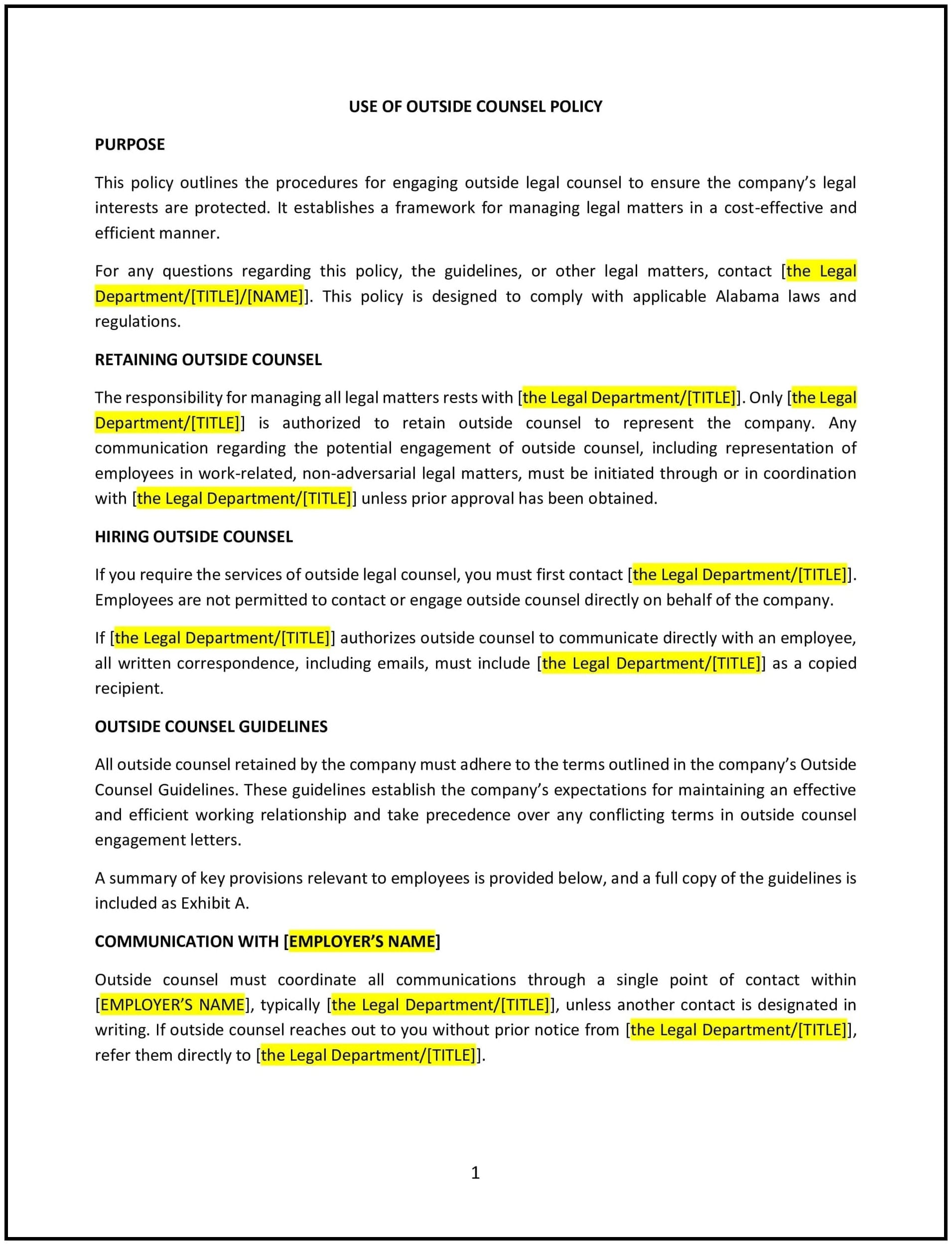Use of outside counsel policy (Alabama): Free template
Got contracts to review? While you're here for policies, let Cobrief make contract review effortless—start your free review now.

Customize this template for free
Use of outside counsel policy (Alabama)
A use of outside counsel policy provides a framework for engaging external legal professionals to address specific legal needs while managing costs and maintaining compliance. For SMBs in Alabama, this policy ensures that the use of outside legal counsel is strategic, aligned with business goals, and properly authorized.
This policy outlines the procedures for selecting, approving, and working with outside counsel, ensuring efficient use of legal resources and consistent oversight.
How to use this use of outside counsel policy (Alabama)
- Define appropriate use: Specify the types of matters that warrant the involvement of outside counsel, such as litigation, regulatory compliance, or specialized legal expertise.
- Establish an approval process: Require formal approval from designated decision-makers, such as the CEO or legal team, before engaging outside counsel.
- Select qualified counsel: Provide criteria for selecting external legal professionals, including experience, expertise, and cost considerations.
- Manage engagements: Outline procedures for defining the scope of work, agreeing on billing arrangements, and maintaining regular communication with outside counsel.
- Monitor costs and outcomes: Include guidelines for tracking legal expenses, evaluating the effectiveness of outside counsel, and ensuring value for money.
Benefits of using a use of outside counsel policy (Alabama)
This policy helps SMBs optimize their use of legal resources and maintain control over legal matters. Here’s how it helps:
- Reduces risks: Ensures legal issues are handled by qualified professionals, reducing exposure to potential liabilities.
- Controls costs: Provides a structured approach to managing legal expenses, including negotiated billing terms and cost oversight.
- Enhances efficiency: Streamlines the process of engaging and managing outside counsel, saving time and resources.
- Supports compliance: Aligns legal engagements with Alabama and federal laws, minimizing risks associated with non-compliance.
- Promotes accountability: Clearly defines roles and responsibilities for managing outside counsel relationships.
Tips for implementing a use of outside counsel policy (Alabama)
- Build a preferred vendor list: Create a list of pre-vetted outside counsel to streamline the selection process.
- Negotiate fee structures: Consider fixed fees, hourly rates, or blended fee arrangements to manage costs effectively.
- Define clear scopes of work: Ensure all engagements include written agreements that detail the expected deliverables and timelines.
- Maintain communication: Schedule regular check-ins with outside counsel to track progress and address any emerging issues.
- Evaluate performance: Review the outcomes of legal engagements and assess the value provided by outside counsel.